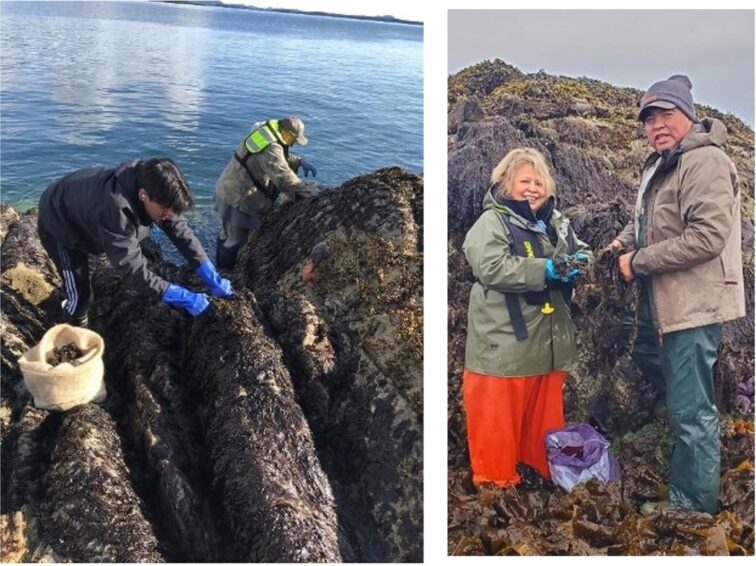
Kitsumkalum First Nations members harvesting seaweed. Photo credit: Kitsumkalum annual MaPP reporting 2023)
Numerous industrial activities are creating development pressure on B.C.’s North Coast. These projects, along with human activities and climate change, are having a profound impact on the core values of First Nations in the region. To address this concern, the North Coast Cumulative Effects Program (NCCE Program) offers community harvesting grants to six Nations: Gitga’at First Nation, Gitxaała Nation, Haisla Nation, Kitselas First Nation, Kitsumkalum First Nation, and Metlakatla First Nation. The intent of the grants is to offset the loss of resources from past and ongoing development by addressing a commonly identified barrier from community-based research.
The Kitselas First Nation has applied for and received these grants each year since they were first offered in 2021. Cindy Barwell is the Senior Resource Stewardship Officer with the Kitselas Lands & Resources Department.
“Our first two grants were for a community-led, education-based traditional foods harvesting program that provided Kitselas Elders and households with food fish”. said Cindy.
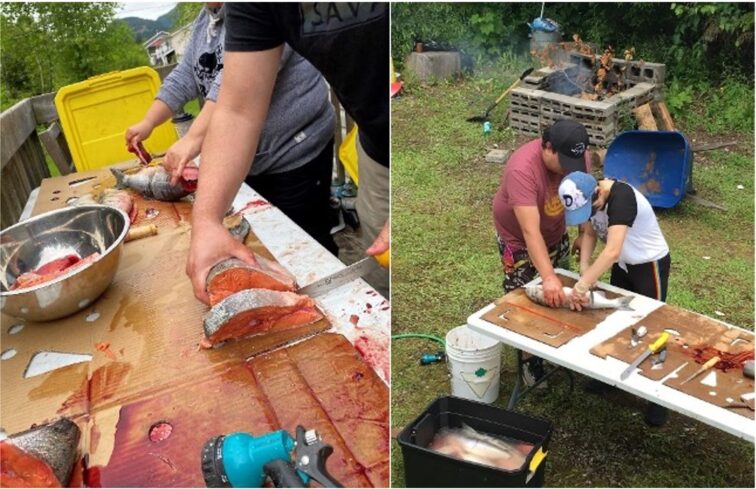
Kitselas First Nation members processing food fish
She noted that Kitselas members find it increasingly hard to access and secure traditional foods due to pressures associated with time, capacity, industrial development, and competition. Funding like this provides an opportunity to start to address some of the issues associated with food security and access to traditional resources.
The Kitselas First Nation has also used the grant program to fund a fishwheel feasibility study. Access to food fish and food fishing locations has been identified as an issue for the Nation. The feasibility study was essential for the community to make an informed decision about the value of repairing old fishwheels.
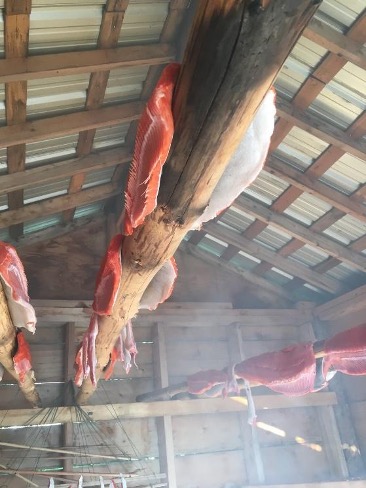
Smoking salmon on the Kitselas First Nation.
Cindy recently applied for a grant for a food fish instructional booklet and video.
“This booklet and video will provide people with step-by-step instructions on how to catch and process food fish, taught by fellow community members and elders who hold knowledge and expertise. Previous grants have added to Kitselas’ sovereignty and presence within their Traditional Territory. This grant adds to a myriad of programs that are assisting Kitselas members with their food security and sovereignty priorities.”
The nearby Kitsumkalum First Nation has also received community harvesting grants since the program’s inception. Quinton Ball is the Nation’s Strategic Lead for Environment Lands and Referrals.
“Our first grant allowed us to buy an open fishing jet boat for getting community members out on the water,” he said. “It’s been super successful and allowed members to harvest food fish and get back on the water safely.”
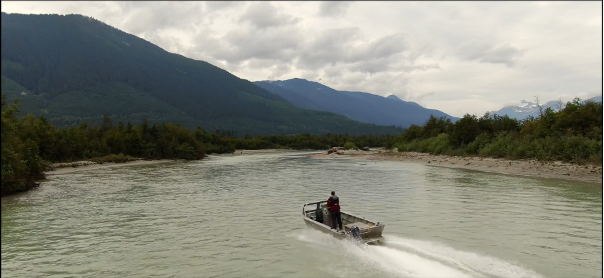
The Kitsumkalum First Nations boat purchased with an NCCE Program community harvesting grant enjoying the beautiful upper Kitsumkalum River (Beaver River).
The following year the Kitsumkalum First Nation used its grant money to purchase a trailer for transporting fish from Prince Rupert to Terrace and the year after that invested in ice machines and additional totes for storage.
“One of the barriers we have is with so many of our members working on LNG or other projects it’s become hard to collect harvest and then process fish fast enough.” said Quinton. “This leads to wastage. Having ice available helps with food preservation, which helps facilitate better use of our resources.”
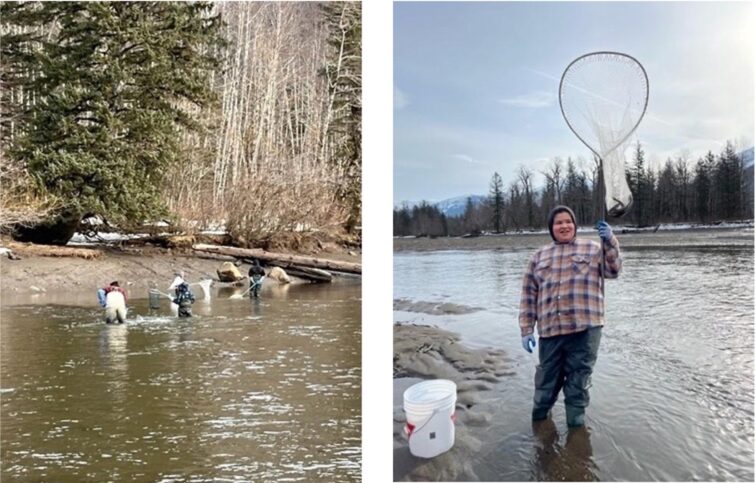
Kitsumkalum First Nations members harvesting oolichan.
Quinton’s goal with these and other grants is to help put the community back in charge of their own food harvesting.
“The ability to get back out on the water and the land and do traditional harvests is huge,” he said. “Everyone from Terrace and beyond hunts right up our valley. There’s logging that has occurred heavily right through our valley. There’s not much left on what will soon become treaty lands, so we need to be able to access all areas of our Traditional Territory to harvest food and medicine.”
The aims of the community harvesting grants align with MaPP’s goal of sustainable economic development and healthy communities. MaPP’s North Coast subregion and the Environmental Stewardship Initiative joined forces to create the NCCE Program, which funds the grants. The shared desire is to develop and implement a cumulative effects framework to continuously monitor, assess, and manage the impacts of development in the North Coast on core coastal and marine values.



